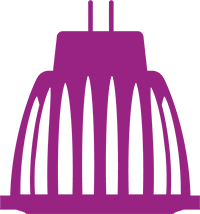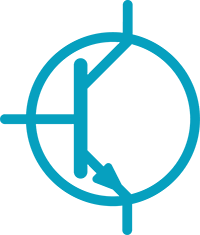About
The IEA 4E SSLC Platform conducts research that is designed to support member governments and policy makers on the metrics and requirements set-out in existing regulations and the measurement standards that underpin those requirements to determine the accuracy and cost of conducting testing of SSL products. The aim is to provide guidance to policy makers to help formulate improved requirements and how these requirements can be cost-effectively verified.
This work is necessary to provide a check on the work output of standardisation bodies who are developing test metrics and methods for setting robust policy measures. This Task may look at parameters such as endurance tests, lifetime, colour consistency, standby power and temporal light modulation. The SSLC Platform will review the metrics and requirements set-out in existing SSL regulations as well as metrics that are not included and assess the measurement standards that underpin those regulations.
This on-going assessment of the metrics and requirements will investigate the accuracy of the measurement, the cost and the time for doing it. If any gaps are found, or alternative, more accurate and/or less costly methodology identified, feedback will be provided to the standardisation bodies along with suggestions on how best to address these issues.
Policy Support Resources
This task studied the lessons learned by the SSLC Platform member governments on the introduction of quality, energy-efficient LED lighting products into their respective markets. Including, for example, how their markets developed and evolved, what approaches helped to ensure quality LED products, and important pitfalls to avoid. This work encompassed the publication of two reports – an initial report at the UN Climate Change Conference, COP21 in December 2015 and then a full report on June 2017. These reports summarise the market experiences and successful programmes, offering guidance to policy-makers as they work to develop programmes and policies that will promote quality SSL products in their respective markets.
In December 2015, the SSL Annex published an Executive Briefing in conjunction with the launch of the Global Lighting Challenge which took place in Paris at the UN Climate Change Conference, COP21.
Please click here to download a copy of the Executive Briefing.
Please click here for the news item about the Executive Briefing.
On 26 June 2017, the SSL Annex published “Lessons Learned Bringing LEDs to Market” which highlights dozens of policies and programmes that contributed to the promotion of high quality, energy-efficient lighting in the SSL Annex member country markets. This report captures quality assurance mechanisms, including market monitoring and performance testing; tailored communication approaches for consumers and businesses; manufacturer support and incentive approaches for consumers and businesses.
The SSLC Platform member countries offer lessons learned from their work to promote quality LED lighting, recognising the fact that governments and other stakeholders can play a pivotal role in raising supply chain awareness of efficiency opportunities with LEDs, helping to build demand and stimulate supply for highly efficient and quality products. The report covers four broad themes that encapsulate the lessons learned bringing these technologies to market:
- Quality Assurance – considering market mechanisms such as minimum efficiency performance standards (MEPS), LED performance guidelines and specifications, and market monitoring, verification and enforcement.
- Communication Tools – considering interventions such as product certification, labelling and information programmes, training programmes for retailers and initiatives to engage with lighting designers and other lighting professionals;
- Incentive Schemes – promoting high quality lamps through specifications and incentives targeting the domestic and the professional lighting markets;
- Domestic Manufacturing Support – recognising that the ‘science of today is the surplus of tomorrow’, many governments have looked to support their domestic companies engaged in LED lighting manufacturing, including public investments, awards and other programmes.
SSLC Platform member countries have decades of combined experience with developing markets for LED illumination products; however, no single policy or programmatic model applies globally. Rather, a portfolio of market transformation policy and programme tools can support and sustain markets for high quality, energy efficient products. Governments and energy efficiency programmes can raise awareness of efficiency opportunities and the benefits of LED products, throughout the supply chain. In many cases, support for developing and deploying LED illumination products constitutes the first step in a rapid market transformation to an energy-efficient economy.
The SSLC Platform is working to provide tools and information to help governments establish and run efficient and cost-effective MV&E programmes around the world. This task is working toward the objective of establishing policy guidelines that will help to replicate best practice in national market MV&E programmes.
This work will involve the systematic gathering and analysis of national market MV&E activities in the member countries of the SSLC Platform and elsewhere. The findings from this research are expected to help governments lower costs of MV&E while ensuring high compliance rates. The output will include guidance for policy makers on successful approaches and potential cost-saving measures.




































